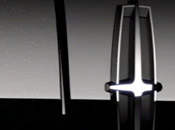1996 Lincoln Continental Car Insurance Quotes – 8 Ways to Save
Are you a victim of an underperforming, overpriced car insurance policy? Believe me, you’re not alone.
With consumers having so many car insurance companies to choose from, it can be impossible to pick the right company.
It’s smart to price shop coverage on a regular basis since rates trend upward over time. Despite the fact that you may have had the best rates for Continental insurance a year ago a different company probably has better rates today. Starting right now, block out anything you think you know about car insurance because you’re going to learn the best way to reduce your cost while increasing coverage.
Compare Auto Insurance Costs
Effectively comparing auto insurance prices can be challenging if you don’t utilize the most efficient way to do it. You can waste a lot of time driving to insurance agencies in your area, or you can utilize the web to maximize your effort.
Most of the larger companies participate in an industry program that enables customers to enter their policy data once, and at least one company can give them a price determined by their information. This eliminates the need for quotation requests to each individual auto insurance company.
To find out how much you’re overpaying now click here to open in new window.
The single downside to comparing rates this way is that you can’t choose which carriers you will receive quotes from. If you would rather choose individual companies to compare rates, we put together a list of auto insurance companies in your area. Click here for list of insurance companies.
Which method you use is up to you, but be sure to compare apples-to-apples quote information with every price quote. If you compare unequal deductibles or liability limits then you won’t be able to determine the best price for your Lincoln Continental. Just a small difference in limits can result in a big premium difference. Just remember that comparing more company’s prices helps you find a better price.
Tailor your coverage to you
When choosing proper insurance coverage, there really is no single plan that fits everyone. Each situation is unique so your insurance should reflect that For instance, these questions can aid in determining whether or not you might need professional guidance.
- Will my insurance pay for OEM parts?
- Is a fancy paint job covered?
- Do I need PIP (personal injury protection) coverage in my state?
- Am I covered if I drive in a foreign country?
- Do I get a pro-rated refund if I cancel my policy early?
- Does my policy cover my teen driver if they drive my company car?
If it’s difficult to answer those questions but a few of them apply, then you may want to think about talking to a licensed agent. If you don’t have a local agent, fill out this quick form or you can also visit this page to select a carrier
Auto insurance coverage information
Having a good grasp of a car insurance policy helps when choosing which coverages you need for your vehicles. Car insurance terms can be ambiguous and coverage can change by endorsement. These are typical coverage types available from car insurance companies.
Comprehensive coverage (or Other than Collision) – This pays to fix your vehicle from damage OTHER than collision with another vehicle or object. You first must pay your deductible and then insurance will cover the rest of the damage.
Comprehensive coverage protects against claims like damage from getting keyed, vandalism, hitting a deer and falling objects. The maximum amount your car insurance company will pay is the ACV or actual cash value, so if the vehicle’s value is low consider dropping full coverage.
Liability – Liability insurance will cover damages or injuries you inflict on other’s property or people that is your fault. Coverage consists of three different limits, per person bodily injury, per accident bodily injury, and a property damage limit. Your policy might show limits of 50/100/50 that translate to $50,000 bodily injury coverage, a total of $100,000 of bodily injury coverage per accident, and property damage coverage for $50,000.
Liability coverage protects against things such as loss of income, repair bills for other people’s vehicles and legal defense fees. How much liability should you purchase? That is up to you, but you should buy as much as you can afford.
Insurance for medical payments – Personal Injury Protection (PIP) and medical payments coverage kick in for short-term medical expenses for rehabilitation expenses, prosthetic devices and pain medications. They are used to cover expenses not covered by your health insurance policy or if you do not have health coverage. Coverage applies to both the driver and occupants and also covers being hit by a car walking across the street. PIP coverage is not available in all states but it provides additional coverages not offered by medical payments coverage
Collision coverage – This covers damage to your Continental caused by collision with an object or car. You have to pay a deductible and the rest of the damage will be paid by collision coverage.
Collision coverage pays for claims like crashing into a ditch, sustaining damage from a pot hole, crashing into a building, colliding with another moving vehicle and sideswiping another vehicle. Paying for collision coverage can be pricey, so consider removing coverage from older vehicles. Another option is to raise the deductible to save money on collision insurance.
Uninsured Motorist or Underinsured Motorist insurance – This protects you and your vehicle from other drivers when they either have no liability insurance or not enough. It can pay for hospital bills for your injuries and also any damage incurred to your Lincoln Continental.
Due to the fact that many drivers have only the minimum liability required by law, it doesn’t take a major accident to exceed their coverage limits. This is the reason having UM/UIM coverage should not be overlooked.

